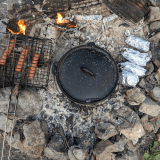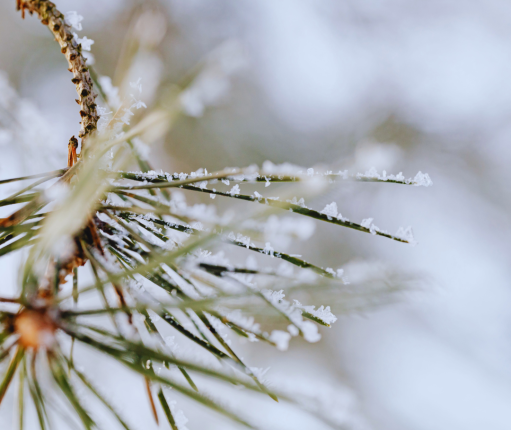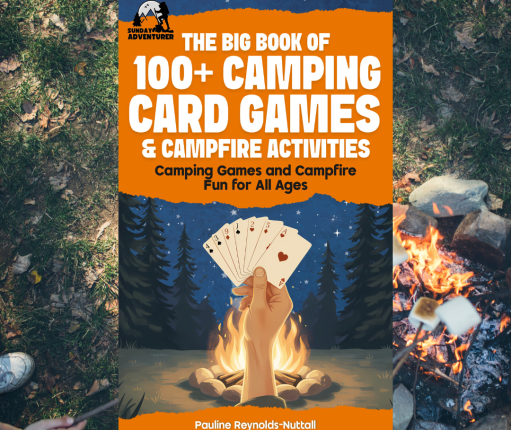Are you wanting to learn how to fly fish or become a better fly fisherman? It doesn’t matter if you are a beginner to fly fishing, or have over 20 years of experience. Fly fishing is a passion and you are always learning new tips and tricks along the way. It’s not about how well you fish, but how well you enjoy it. Hopefully from this post, you will learn more about how to fly fish and improve your fly fishing skills.
I started fly fishing a few years ago and I love it. I am no expert, but I have learned a few things along the way. I can always get better and have a blast practicing my fly fishing casts. And, I am always learning, always asking, and always ready to have more fun.
I decided that if I was going to write this post, I wanted it to be for fishermen by fishermen. I enlisted a few guys from the fly shop, a couple of buddies that fish, and my online fly fishing community. This is some great advice from some of the best anglers I know. We can all learn from each other and it’s all free advice. This post includes the best fly fishing tips, fly fishing advice and fly fishing hacks. This post is will be most helpful for those who are just starting out, but there are tips here that could be helpful to anyone who fly fishes. If you are thinking about using a Tankara rod, you should read “Simple Fly Fishing”.
Tips for Beginner Fly Fishermen
I have put together the best tips that would be most helpful for those new to fly fishing. I have included tips on casting, flies, gear and fishing in general. I hope you find these tips helpful.
1. Always Get a Fishing License
Before you do anything else, go get a fishing license. It’s not worth losing your fishing privileges or getting fined. Did you know that a portion of your license fee goes to conservation and preservation so that others can enjoy fly fishing too? Many licenses can be bought online.
2. It Doesn’t Cost a Lot to Start
You don’t need a whole lot of money to start fly fishing. People think it is an expensive hobby. It can be, but it doesn’t have to cost hundreds of dollars. Those expensive poles are meant to catch your wallet, not fish. A $50.00 rod will catch as much fish as a $1000.00 rod. It really depends on the skill. Start out with cheap gear and then if you decided you love it, you can always get a more expensive rod. There are many ways to get inexpensive outdoor gear, including yard sales, estate sales, and clearance.
3. Spend Time at the Local Fly Shop
One of the best ways to learn about fly fishing is by spending time with the local outfitters or down at the fly shop. You can learn so much and it doesn’t cost you a dime. Even though fishing is a solo sport, there is a community that is happy to teach others what they know. They can tell you what’s biting and why your cast is wonky.
4. Join an Online Community or Local Club
Did you know that there are online communities and local clubs for fly fishing? These are great ways to see what’s biting and get tips so that you can become an accomplished fly fisherman. My online and local communities are always helpful when I have questions.
5. Watch YouTube or Fishing TV
There are so many Youtube videos and tv shows that can help you learn more about fly fishing and how to perfect your cast. Fishingtv.com is my favorite resource for anything fishing, including fly fishing tips and shows for beginners. I have learned so much from Nick Hart’s Fly Fishing School and the Orvis Guide to Fly Fishing.
6. It’s a Rod, Not a Pole
If you don’t want anyone to make fun of you for being a beginner, learn the terminology. It’s a fly rod not a fly pole. Also learn the difference between the different types of flies: dry flies, streamer, midge, etc.
Looking for suggested gear or fishing gifts? Check out this post here.
7. Learn to Tie Knots
Learn to tie at least the basic fishing knots, but other types of knots can come in handy. Practice your knot tieing before you go out on the water. There are books, videos, and even diagrams. Do not get stranded out on the river or the creek and have to turn around because you can’t tie a fishing knot.
8. Check the Weather
You probably don’t want to get caught fishing in a thunderstorm or in a 100 degree weather. Not only will you be miserable, but the fish don’t always like crummy weather either.
9. Always Wear Glasses and a Brimmed Hat
There is a reason why you see everyone out on the river with the wide-brimmed hats. It’s not because they look cool (which they do) or because it’s easy to storage for your favorite flies (sometimes easier than opening your fly box). It’s for safety. A hat not only helps protect your face from the sun, but it can help protect it from a cast that goes wrong. It’s the same reason why you should wear sunglasses. Google fly fishing accidents if you need to. It’s one of the reasons I don’t wear shorts…
10. Keep It Simple
Do not be that person who overcomplicates it. Fly fishing really is simple and easy, but because it has gotten more popular, it has gotten out of control. There are so many myths and crazy ideas about fly fishing. It is not rocket science and if you overcomplicate it, it will probably stop being fun and you will just get frustrated.
11. Just Get Out There
It doesn’t matter if you have a crappy cast (pun intended) and you have no idea what you are doing. Just go fishing. You are not going to get any better if you stay at home. And you’ll also be missing out on the fun. It’s like being a fly fisherman but afraid to get into the water. You will catch more fish by going in, so just do it. It’s about having fun and it shouldn’t matter what other people think. It’s not just about catching fish.
12. Take Some Lessons
A lesson or two can be extremely helpful. You can learn a lot online, but sometimes in-person learning is better. Did you know that some Orvis retailers and stores offer some free classes? Orvis has a Fly Fishing 101 class that is free and you can check out locations for FF 101 here. If you do not have an Orvis store, check-in with your local fly shop or outdoor and sporting goods store to learn more about how to find fly fishing classes.
13. Tie Your Own Flies
Tieing your own flies is not cheaper by any means, but the only feeling better than catching your first fish with a fly rod, is catching a fish with a fly you tied yourself. Your flies do not have to be beautiful or professional-looking. They just have to catch fish. Some of the ugliest and gaudiest flies will catch more fish than anything else. Besides, it’s a fun hobby and a great creative outlet.
14. Always Take Extra Flies
You never know what they are going to be biting, and maybe that “unicorn” dry fly that is neon pink with gold that your four year old tied, might be the ticket. Besides, flies snap off, especially when you are juts learning to fly fish. I always keep a dozen black ants on hand because you never know.
15. Practice Your Casting
Casting practice increases your performance and presentation. The roll cast is invaluable for any fly fisherman and also learn sidearm cast. There are many different types of casts and practice makes perfect. Knowing a variety of casts is essential for better fishing in some of the toughest conditions.
16. Learn How to Tie Your Own Leaders
Leaders break. Instead of having to replace the whole line or go home, bring some extra line with you and learn how to tie your own leader. Building your own leader can improve accuracy but is also satisfying. By tieing your own leader, you can better understand the dynamics of casting and can troubleshoot more easily when you are out on the water.
16. Fish Responsibly
Whether you choose to keep your fish or not, that is up to you. No one is going to shame you if you keep a few. But do fish responsibly. Pick up your trash, do your best to properly dispose of extra line, and try to find your lost hooks or free a snag instead of just cutting the line. I have one big rule with my kids when we go fishing: if you snag it, you go get it. Be respectful of others around you and respectful of the outdoors. A great tip for retrieving hooks is to keep a telescoping magnet pen in your fly vest to retrieve flies dropped in rocks or underwater.
17. Check Your Regulations
It is astonishing that many people don’t check the regulations and also can’t even recognize the type of fish they are fishing for. Know your fish and always check the local regulations. This could mean certain areas are closed during certain times of day (hoot owl restrictions) or certain times of the year, the type of flies being used can be restricted, the number of fish you can keep is limited, or maybe it’s catch-and-release only. For example, one of my favorite places to fish is on the Selway River up the Magruder Corridor in Idaho (read the book Indian Creek Chronicles). Fishing in that area is catch-and-release only, no barbs, and be aware of bull trout.
18. Learn to Lie
Learn to lie. Learn to lie to your buddies about the number of fish you caught. Learn to lie to your partner about how much you spent on new gear or tackle. Learn to lie about how much you drank. Learn to lie about what really happened to your last rod. 🙂
19. Boat Etiquette
No one wants to be in a boat with someone who has no idea what they are doing. Make sure your friends know how to row, and also that you share the rowing duties. Respect another man’s boat. Don’t get into someone’s rubber raft or any boat wearing cleats. Not cool.
20. Everything Should Be Attached
Chances are if your a newb, you don’t have a lot of stuff. However, you don’t want to have to go diving after your gear. Everything in your fly vest should be attached to a zinger. Dropping a case of flies in the river only to see them go downstream is a major bummer.
21. Choose the Right Rod
The right weight rod and leader weight and length are absolutely crucial for the best presentation and more hookups. A good beginner rod is a 5/6 weight with a length of eight to nine feet. This is just a good size for any beginner and fly fishing in general. You can always get a different size later, once you have decided to continue to pursue the sport and what type of fishing you will be doing. Orvis has a good article on how to choose the right rod.
22. Know What Bug to Use
Know what the fish are biting. You can check with your local fly shop, but there are two ways to see what the fish are biting. Look under rocks, watch the water and look under logs. You can also check the stomach contents of the fish you check too. It’s also helpful to know the name of the bugs. Choose the closest pattern to what you find in the area.
23. Read
Books can also be a great source for learning more about fly fishing. Here are some of my favorites:
I hope you have found this post helpful. These are just a few of the helpful tips for beginners, but they are the ones I see suggested again and again. Thank you again to all of you for chipping in with your genius fly fishing advice, especially D.J. Do you have any suggestions or tips for others that are new to fly fishing? Be sure to drop them in the comments below. Tight lines.
















No Comments